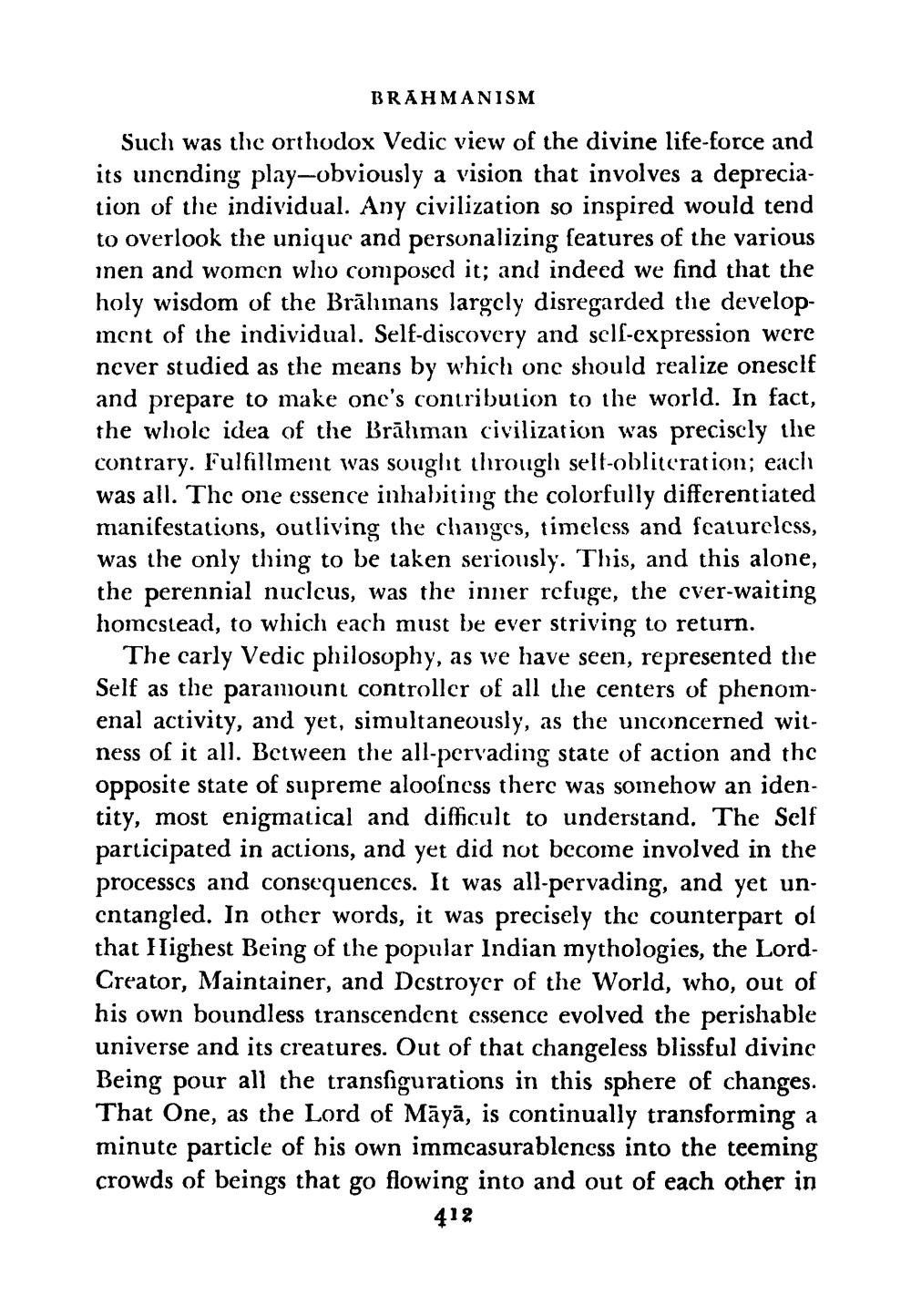________________
BRAHMANISM
Such was the orthodox Vedic view of the divine life-force and its unending play-obviously a vision that involves a depreciation of the individual. Any civilization so inspired would tend to overlook the unique and personalizing features of the various men and women who composed it; and indeed we find that the holy wisdom of the Brālınans largely disregarded the development of the individual. Self-discovery and self-expression were never studied as the means by which one should realize onesclf and prepare to make one's contribution to the world. In fact, the whole idea of the Brāhman civilization was preciscly the contrary. Fulfillment was sought through selt-obliteration; each was all. The one essence inhabiting the colorfully differentiated manifestations, outliving the changes, timeless and fcatureless, was the only thing to be taken seriously. This, and this alone, the perennial nucleus, was the inner refuge, the cver-waiting homestead, to which each must be ever striving to return.
The carly Vedic philosophy, as we have seen, represented the Self as the paramount controller of all the centers of phenomenal activity, and yet, simultaneously, as the unconcerned witness of it all. Between the all-pervading state of action and the opposite state of supreme aloofness there was somehow an identity, most enigmatical and difficult to understand. The Self participated in actions, and yet did not become involved in the processes and consequences. It was all-pervading, and yet uncntangled. In other words, it was precisely the counterpart of that Highest Being of the popular Indian mythologies, the LordCreator, Maintainer, and Destroyer of the World, who, out of his own boundless transcendent essence evolved the perishable universe and its creatures. Out of that changeless blissful divinc Being pour all the transfigurations in this sphere of changes. That One, as the Lord of Māyā, is continually transforming a minute particle of his own immcasurableness into the teeming crowds of beings that go flowing into and out of each other in
412




